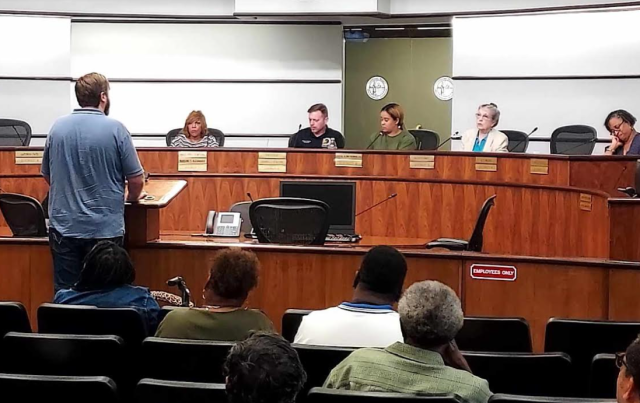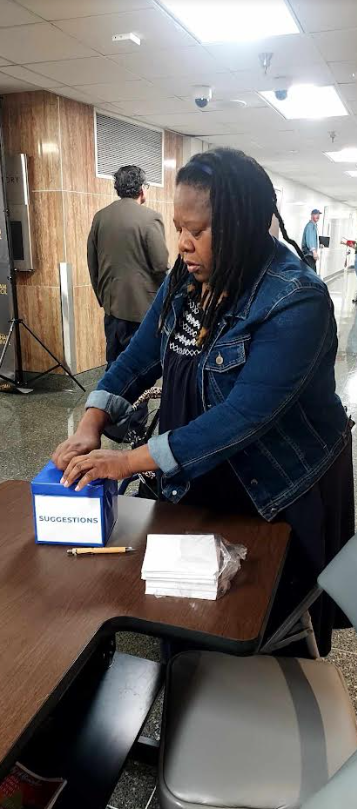
By Keisa Sharpe | For The Birmingham Times
Nearly two dozen Birmingham residents showed up at City Hall Monday evening for the City Council budget hearings to voice some concerns and ask for budget expenditures to help with various improvements in their neighborhoods.
The city’s fiscal year begins July 1.
Darlene Tarrance, a Roosevelt Village resident, said she was concerned about “people coming to our neighborhood to dump things on empty lots … ”
Tarrance said she left a note in a suggestion box outside the council chambers for city leaders to consider installing cameras at dump sites in local neighborhoods “to catch those offenders.
Others asked city leaders to address various items like improving the condition of local roadways, providing consistent trash pickup to known dumping sites/empty lots, and adding more safety measures and police presence for communities with high crime, including West End and Inglenook.
Birmingham Council President Darrell O’Quinn said the spending plan for next year is identical to this year’s budget. City officials are using the $554 million 2024 budget as a stand-in for the coming year to allow staff to catch up on work lost due to what the city called a computer network disruption, which several news organizations have reported as a ransomware attack.
Gwen Webb, president of the Inglenook Neighborhood Association, said after the meeting she was disappointed the city proposed a budget based on last year’s numbers.
“Costs have increased across the board for police and fire and other services over the past year and we’re using a 2024 budget,” said Webb. “Why not just pay to fix the [ransomware] attack?”
O’Quinn encouraged citizens to stay engaged the next few weeks as financials are still being reconciled. And he added, “We are all anticipating that what you see proposed and what will be approved may be vastly different,” said O’Quinn, who applauded those who shared their concerns, even though some items mentioned were outside of the city’s control (like cutting overgrown grass on private lots owned by citizens), he said.
However, he pointed out “over the past six years, the city has paved close to 60 miles of roadways “and that doesn’t include pothole repairs and the permanent patching that we do,” he said.

Monday’s speakers also included several members from People’s Budget Birmingham, a group that advocates for more public participation in the city’s budget process. According to its website, the organization demands an end to “the near total control the mayor has over the city budget” and urges that “city councilors regain the power to make changes to the city budget that best meet the needs of the people they represent.”
The mayor holds the budget power thanks to Alabama’s 2016 Mayor-Council Act, which critics have said shifted that balance of power too heavily toward the executive.
Gabriel Cubero, executive director for People’s Budget Birmingham pointed out Woodfin’s absence from Monday’s meeting to which some members of the audience applauded in response.
“We stand here for three minutes to tell all of you, ‘I need better roads, I need better parks, I need better security, I need better transportation,” all the while the person, people or department with the power to change the budget is unable to attend,” Cubero said to the council, referring to the three-minute time limit for speakers.
The mayor’s office said Woodfin “has never attended the budget hearings which as hosted by the council.”
Councilors in attendance included Clinton Woods (District 1), Councilor Hunter Williams (District 2), President Pro Tem Wardine Alexander (District 7), Councilor Crystal Smitherman (District 6), Council Valerie Abbott (District 3), Councilor Carol Clarke (District 8) and O’Quinn.
Councilors LaTonya Tate (District 9) and J.T. Moore (District 4) were not present.
Next steps involve the council adopting the proposed budget by June 20.




